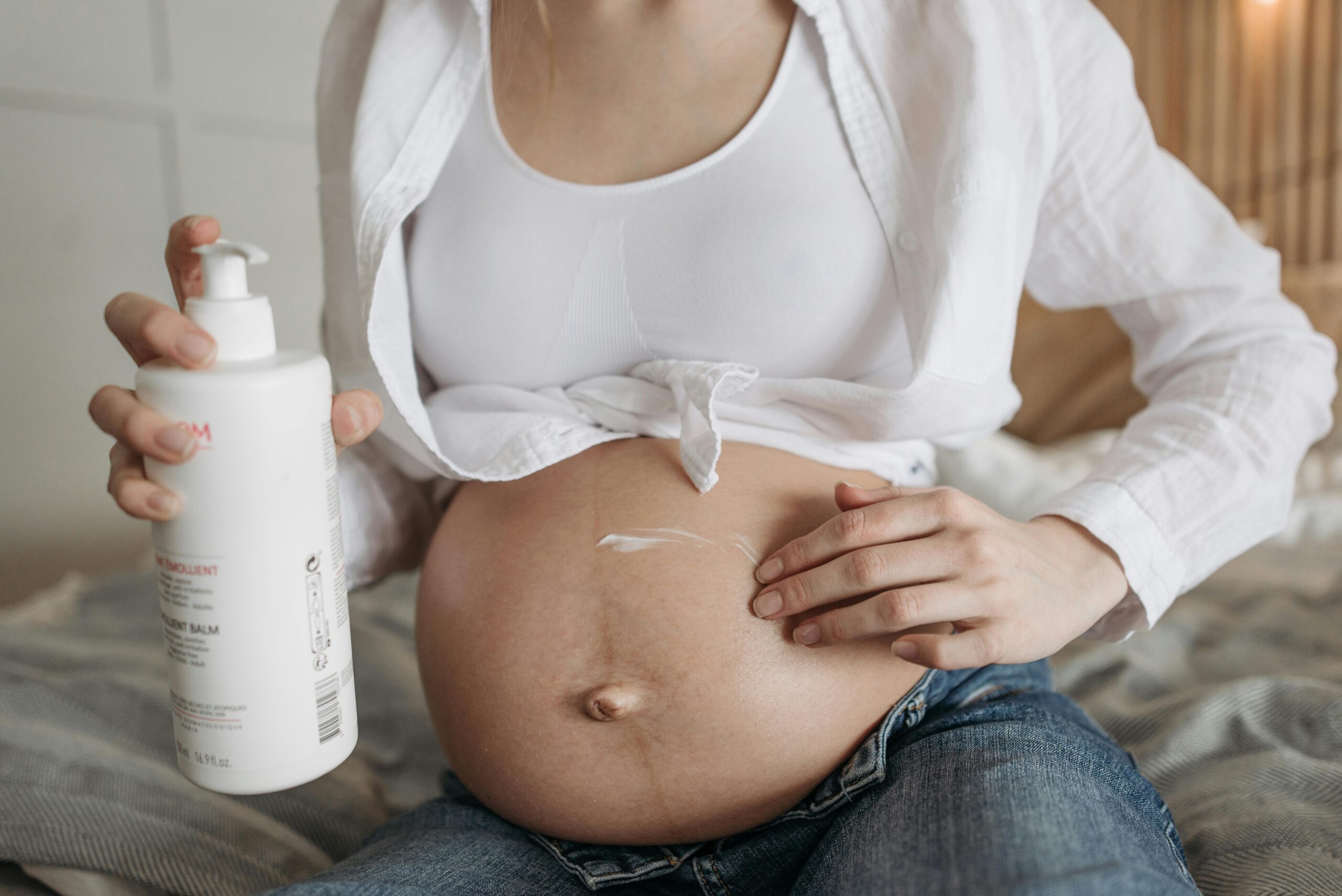Pregnancy brings many exciting changes, but it also requires special attention to skincare. The hormonal fluctuations during this time can lead to skin sensitivity, breakouts, or other skin concerns. It’s essential to be mindful of the products you use to ensure both your skin and your baby stay healthy. Here, we’ll cover the best skincare tips for pregnant women, along with safe ingredients and products.
1. Prioritize Gentle Cleansers
Your skin may become more sensitive during pregnancy, so it’s crucial to choose a gentle, non-irritating cleanser. Look for sulfate-free formulas, as sulfates can strip your skin of natural oils, leading to dryness and irritation. A mild, hydrating cleanser with natural ingredients like aloe vera or chamomile can be soothing, leaving your skin clean without harsh chemicals.
2. Choose Hydrating Moisturizers
Pregnant women may experience dry skin, so using a good moisturizer is essential. Look for products that contain hydrating ingredients like hyaluronic acid, glycerin, and ceramides. These ingredients help lock moisture into the skin without causing irritation. Avoid moisturizers with strong fragrances, as they can lead to skin sensitivity or allergic reactions.
3. Opt for Pregnancy-Safe Sunscreens
Sunscreen is a must, as your skin can become more prone to sunburn and pigmentation during pregnancy due to hormonal changes. Choose a broad-spectrum, mineral-based sunscreen with zinc oxide or titanium dioxide. These physical sunscreens are less likely to irritate the skin compared to chemical sunscreens that contain ingredients like oxybenzone or avobenzone, which may not be safe during pregnancy.
4. Avoid Harmful Ingredients
Some skincare ingredients should be avoided during pregnancy due to potential risks to your baby. These include:
- Retinoids (Vitamin A derivatives): Retinol and other retinoid-based ingredients can be harmful when absorbed through the skin. Instead, opt for products with safer alternatives like vitamin C or bakuchiol, which offer similar benefits without the risks.
- Salicylic Acid: While it’s commonly found in acne treatments, salicylic acid, especially in higher concentrations, can be absorbed into the bloodstream and may not be safe for pregnant women.
- Hydroquinone: A skin-lightening agent, hydroquinone should be avoided as it can be absorbed into the bloodstream.
- Benzoyl Peroxide: Often used in acne treatments, benzoyl peroxide can cause skin irritation and may not be suitable for pregnant women.
Always check the ingredients list carefully and consult with your doctor if you have any concerns.
5. Keep Your Skin Hydrated
Drinking plenty of water is essential for your skin and overall health. Hydrated skin looks more radiant and can prevent issues like dryness, itching, and stretch marks. Aim to drink at least 8 glasses of water a day to maintain optimal hydration levels. You can also use a hydrating facial mist throughout the day to refresh your skin.
6. Take Care of Stretch Marks
Stretch marks are a common concern during pregnancy, and while it’s difficult to prevent them entirely, certain products may help minimize their appearance. Look for creams or oils containing ingredients like cocoa butter, shea butter, and vitamin E. These ingredients can help improve skin elasticity and provide relief from dryness and itching. However, stretch marks are largely determined by genetics, so results may vary.
7. Address Pregnancy Acne
Hormonal fluctuations during pregnancy can trigger breakouts. If you’re dealing with pregnancy acne, avoid using harsh products that may irritate your skin. Instead, opt for gentle treatments with ingredients like benzoyl peroxide (in small amounts) or natural alternatives like tea tree oil. Always consult your doctor before using any acne treatments during pregnancy to ensure their safety.
8. Be Mindful of Skin Sensitivity
Pregnancy can make your skin more sensitive than usual. Avoid using exfoliants with harsh ingredients like alpha-hydroxy acids (AHAs) or beta-hydroxy acids (BHAs) in higher concentrations. Instead, opt for gentle exfoliants with natural ingredients like oatmeal or jojoba beads. Always patch-test any new products before applying them to your entire face to prevent irritation.
9. Nourish Your Skin from the Inside
A healthy diet plays a significant role in the appearance of your skin. Eating nutrient-rich foods that are high in antioxidants, vitamins, and omega-3 fatty acids can help maintain your skin’s health. Incorporate foods like berries, leafy greens, nuts, and fatty fish into your diet for a natural glow.
Conclusion
Taking care of your skin during pregnancy is all about being mindful of the products and ingredients you use. Stick to gentle, hydrating skincare routines, avoid harmful chemicals, and nourish your skin both inside and out. With the right care, you can maintain healthy, glowing skin throughout your pregnancy.
Frequently Asked Questions (FAQs)
1. Can I use retinol during pregnancy?
No, retinol and other retinoids should be avoided during pregnancy, as they may pose risks to your baby. Opt for alternatives like vitamin C or bakuchiol, which are safer options.
2. Is it safe to use acne treatments while pregnant?
Some acne treatments, such as those containing salicylic acid and benzoyl peroxide, should be avoided. Consult your doctor for safe options like tea tree oil or gentle treatments.
3. What sunscreen is safe for pregnant women?
Mineral-based sunscreens with ingredients like zinc oxide or titanium dioxide are the best options for pregnant women. Avoid sunscreens with chemical ingredients such as oxybenzone.
4. How can I prevent stretch marks during pregnancy?
While it’s hard to prevent stretch marks completely, moisturizing your skin regularly with creams or oils containing ingredients like cocoa butter and vitamin E can help improve elasticity.
5. Can I use face masks during pregnancy?
Face masks that are made with natural ingredients, such as honey or aloe vera, are generally safe for pregnant women. However, always check the ingredient list and avoid masks with harmful chemicals.



